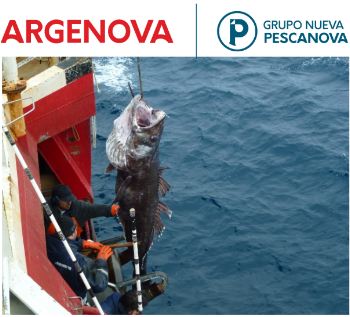|

Would Argenova face the risk of losing its toothfish quota (equivalent to 8.5388% of the total allocated)?
Patagonian Toothfish: Sleeping with the Enemy?
 ARGENTINA
ARGENTINA
Thursday, April 24, 2025, 23:00 (GMT + 9)
In Argentina’s fishing sector, suspicions are mounting that a company linked to the Patagonian toothfish (merluza negra) fishery may be engaging in political maneuvering and media campaigns aimed at discrediting Argenova, possibly in an effort to weaken its position and ultimately claim part of its fishing quota.
.png) According to industry sources, Argenova risks losing its Patagonian toothfish quota (equivalent to 8.5388% of the total allocated) due to the prolonged inactivity of its longliner vessel, the Argenova XIV. Its sporadic operations reportedly fall short of the requirements for a consistent and sustainable fishing effort. These sources also note that the vessel would require a multi-million-dollar investment to return to active service. The enforcement authorities are said to have already issued an ultimatum for its reactivation. According to industry sources, Argenova risks losing its Patagonian toothfish quota (equivalent to 8.5388% of the total allocated) due to the prolonged inactivity of its longliner vessel, the Argenova XIV. Its sporadic operations reportedly fall short of the requirements for a consistent and sustainable fishing effort. These sources also note that the vessel would require a multi-million-dollar investment to return to active service. The enforcement authorities are said to have already issued an ultimatum for its reactivation.
At the same time, the Argenova XXI vessel is facing internal complaints from its crew for allegedly capturing a high percentage of juvenile toothfish, jeopardizing not only the resource’s sustainability but also its market value and international reputation. Experts point out that the vessel’s size and engine power may be insufficient for operations at the depths required to avoid juvenile catch, suggesting this is a structural limitation.
Argenova, however, has categorically denied the accusations. A company executive described them as “a calculated attack driven by commercial interests” and implied that the real motive is to take over Argenova’s quota of this highly valuable species.
.png)
In this scenario, both the Federal Fisheries Council and the Argentine government would do well to remember that Grupo Pescanova—Argenova’s parent company—voluntarily withdrew from its operations in the Falkland Islands (Malvinas) as an expression of solidarity with Argentina’s sovereignty claim over the archipelago. A gesture that, notably, other Spanish companies have not followed, choosing instead to play both sides by maintaining operations in both Argentina and the disputed waters around the Falklands.
The Argenova case highlights more than just the debate over the effective and responsible use of fishing quotas—it also raises critical questions about political and corporate integrity in a highly sensitive geopolitical and environmental context.
[email protected]
www.seafood.media
|



